For years, employees at a Texas VA complained that their bosses were cooking the books. For years, the VA insisted there was no widespread wrongdoing.
Editor's Note: This story has been updated with new information.
Last week, President Obama pledged to address allegations of corruption and dangerous inefficiencies in the veterans’ health-care system. But before the president could deliver on his pledge, the scandal has spread even further. New whistleblower testimony and internal documents implicate an award-winning VA hospital in Texas in widespread wrongdoing—and what appears to be systemic fraud.
Emails and VA memos obtained exclusively by The Daily Beast provide what is among the most comprehensive accounts yet of how high-level VA hospital employees conspired to game the system. It shows not only how they manipulated hospital wait lists but why—to cover up the weeks and months veterans spent waiting for needed medical care. If those lag times had been revealed, it would have threatened the executives’ bonus pay.
What’s worse, the documents show the wrongdoing going unpunished for years, even after it was repeatedly reported to local and national VA authorities. That indicates a new troubling angle to the VA scandal: that the much touted investigations may be incapable of finding violations that are hiding in plain sight.
“For lack of a better term, you’ve got an organized crime syndicate,” a whistleblower who works in the Texas VA told The Daily Beast. “People up on top are suddenly afraid they may actually be prosecuted and they’re pressuring the little guys down below to cover it all up.”
“I see it in the executives’ eyes,” the whistleblower added. “They are worried.”
The current VA scandal broke in Phoenix last month, when a former doctor at a VA hospital there became the first whistleblower to gain national attention. The doctor's allegations of falsified appointments—and veterans dying while they waited for treatment—unleashed a wave of similar claims from VA employees nationwide. In
Cheyenne, Wyoming, Chicago, and
Albuquerque, more VA whistleblowers came forward claiming that the same fraudulent scheduling was being used in the hospitals where they worked. At last count, the VA inspector general’s investigation had expanded to 26 separate facilities.
The torrent of claims led to Senate hearings, calls for VA Secretary Eric Shinseki to resign, multiple investigations and President Obama’s own public statement last week. Paul Rieckhoff, founder and chief executive officer of Iraq and Afghanistan Veterans of America (IAVA), believes that even more revelations are coming.
“This newest case just further illustrates that the scandal is much more far reaching than most people realize,” Rieckhoff said, “Phoenix was just the tip of the iceberg. Scandal has become the new normal, it’s the status quo at the VA right now.”
But, despite the political uproar and the growing investigations, the root causes of the VA crisis have remained murky. New documents and whistleblower testimony obtained by The Daily Beast shed light on exactly how fraud is being perpetrated in the VA and its underlying causes.
There’s enormous pressure to report favorable wait times for VA patients, the Texas whistleblower explained, even if those wait times are completely false.
“If [VA] directors report low numbers, they’re the outlier. They won’t stay a director very long and they certainly won’t get promoted. No one is getting rewarded for honesty. They pretty much have to lie, if they don’t they won’t go anywhere,” the whistleblower added. Weighted more heavily than other performance measures, the wait time numbers alone “count for 50% of the executive career field bonus, which is a pretty powerful motivator.”
Though VA hospitals may be struggling with increasing patient loads and inadequate resources—including too few medical providers—they are punished for acknowledging those problems. The VA’s current system appears to reward executives’ accounting tricks that mask deep structural issues and impede real solutions.
The whistleblower—who will alternately be called “the clinician,” referring to the job they have held with the Texas VA for almost a decade—asked to remain anonymous due to fear of losing their job or being otherwise punished for speaking out.
ANATOMY OF A FRAUD
The clinician has been alerting authorities to the wrongdoing at their facility for years but the corruption has persisted despite multiple reports and investigations by the VA’s inspector general.
The case of Dr. Joseph Spann, a recently retired doctor who reported malfeasance in the Texas VA system, where he worked for 17 years, raises the possibility that official investigations may only be hiding the problems they were charged to root out.
After retiring in January of this year
Spann sent a letter to VA investigatorsaccusing a VA employee of manipulating patient wait lists to hide treatment delays for veterans. The rigged reporting scheme Spann described in his letter, which threatens veterans’ lives by delaying their treatment, is the same method that has been exposed in Phoenix, Cheyenne, Albuquerque, and scores of other VA hospitals across the country.
According to Spann, Dr. Gordon Vincent, chief of radiology at Olin E. Teague Veterans Medical Center in Temple, Texas, didn’t just break VA policy by manipulating veterans’ appointments himself. He ordered VA employees across the state to engage in the same fraudulent practice.
The VA said it investigated Spann’s charges, and, after, finding nothing to substantiate the claims, cleared Vincent and the Texas VA.
But documents obtained by The Daily Beast appear to show Dr. Vincent doing precisely what Spann accused him of—the activities the VA said it could not substantiate.
In the above
document, taken from the VA’s internal record system, you can see Dr. Vincent cancel an ultrasound appointment for a veteran suffering from cirrhosis. Vincent tells the doctor who submitted the original order to change the desired date—the day the provider selected for the procedure based on their diagnosis and clinical judgement—citing the facility’s patient backlog.
Veterans are supposed to be seen within 14 days of their desired date, according to VA policy.
By changing the desired date, Dr. Vincent, a VA section chief, was violating well-established scheduling rules detailed in an official VA memo from April 2010 and re-emphasized in a separate policy directive from June of that year. But forging veterans’ desired dates seems to have been widely considered a low-risk, high-reward form of cheating. Changing the dates made it seem as if patients were being seen within the prescribed 14-day window, which reflected well on the hospital and put its staff in line for bonuses.
For the veterans seeking care, however, it had no such benefits.
In his letter to the VA’s Inspector General’s Office, Spann wrote, “I cannot categorically say that I ever saw a patient die from such manipulated scheduling, but I did see several cancer patients have their possible surgery or chemotherapy treatments delayed awaiting the required radiology tests.”
The VA whistleblower, who provided The Daily Beast with the records implicating Dr. Vincent, works as a medical provider for sick veterans. “It’s plain and simple common sense,” the clinician said. “Every delay in a patient’s diagnosis is an injury. The more severe the veteran’s condition, the worse the injury caused by the wait as the disease is allowed to progress.”
Now that the VA has exonerated Dr. Vincent, there may be no one left to evaluate the injury caused by the appointments he canceled.
NOTES ON A SCANDAL
The document described above is only one piece of evidence in a larger docket against Vincent, which is itself part of a larger record of corruption in the VA that extends far beyond Vincent or any one individual. In 2011, the VA’s inspector general investigated the Central Texas health-care system in response to complaints it had received. The inspector general found that manipulated appointments were widespread and hid significant delays, but the report doesn’t seem to have led to a single VA official being disciplined or officially held responsible for gaming the system.
This
internal VA email chain from 2011, provided exclusively to The Daily Beast, clearly instructs medical providers to falsify their schedules in the same manner that was exposed in Phoenix three years later. Though a VA executive warns that the original message is encouraging fraud, by the email’s conclusion two other doctors have written suggesting that it’s a common occurrence. The email was originally sent to every medical provider in the Central Texas VA health-care network.
The first message in the chain comes from a scheduling coordinator, James Anderson, who tells doctors across the state to use January 2 as the desired date for veterans. The Central Texas VA Chief of Staff, William Harper, then reproaches Anderson, saying, “You cannot do this!!!! This is essentially fraud. The desired date is what it is and if we don’t meet the standard then we will work to improve.”
“For lack of a better term, you’ve got an organized crime syndicate. People up on top are suddenly afraid they may actually be prosecuted and they’re pressuring the little guys down below to cover it all up.”
(The Central Texas VA referred all questions to the national Department of Veterans’ Affairs office in Washington, D.C. Representatives at the national VA declined to comment on the record for this story.)
After the warning from Harper and questions about scheduling from several other doctors, including Spann, the final comment in the thread concerns Dr. Vincent. The message reads: “It doesn’t help if you insist on a date that doesn’t meet their 30-day criteria. Vincent just cancels the order. End of story. ”
In other words: it never mattered what was entered to show the “desired date” requested by the patient or the medical provider treating them. Despite Harper’s protestations, if the entry didn’t help meet the VA’s performance objectives it never made it into the system.
Nevertheless, the VA recently cleared Vincent of wrongdoing and, while acknowledging scheduling malpractice, blamed it on mistakes made by lower-level clerks.
“I saw the press release saying it wasn’t Vincent or any of the executives, that the schedulers were entering the desired dates incorrectly but they were not directed to do so by management. That’s just not true and we’ve got mountains of evidence proving it,” the clinician told The Daily Beast.
PERFORMANCE INCENTIVES
On the ultrasound request form, Dr. Vincent writes that he canceled the order because it was “entered in error.” But that would have come as news to the medical provider who actually interacted with the veteran and entered the date based on their evaluation of the patient’s needs. The real reason for canceling it, according to both Dr. Spann and the whistleblower who spoke with The Daily Beast, was to meet the VA’s performance objectives—whatever the cost.
Meeting the performance objectives, which made executives eligible for bonuses and put them in line for promotions, became the overriding imperative among VA executives, according to both Spann and the whistleblower.
The VA’s 2012 performance plan, provided to The Daily Beast by the whistleblower, contains five critical elements to evaluate success, each one containing multiple sub-criteria. But critical element No. 5, the “Results Driven” component that contains the “wait time” criteria, is worth 50% of the overall score. That’s as much as all the other elements combined.
And scoring high on the
performance measures is of paramount consideration in a VA hospital. “This is what your bosses, the executives, are being evaluated for,” the whistleblower said. “So if you work for them you must support this because that’s how they’re prioritizing their evaluation of your job.”
The VA’s performance measures were originally established to provide uniform criteria for evaluating employees. The idea was to use the grading system to reward those who met the standard with bonuses and identify those who were lagging behind. But over time, VA executives realized that the wait time numbers they reported were almost more important than anything else—including the actual care they provided veterans—in how they were judged by the VA’s leadership. At that point the measures became a perverse incentive, encouraging VA facilities across the country to hide problems by cheating their numbers. Eventually, cooking the books became an alarmingly regular procedure—a standard that might have remained if it hadn’t been exposed in Phoenix and unraveled over the past month.
COVER-UP?
The problems in the Central Texas VA system outlined here may be new to most readers, but they have been on the record for years. They are certainly no surprise to the VA’s Office of Inspector General (OIG), which has received multiple complaints about the facility and investigated it in 2011.
The inspector general’s report from January 2012 stated that, according to the hospital’s own staff, “appointments were routinely made incorrectly by using the next available appointment date instead of the patient’s desired date.” The improper scheduling “led to inaccurate reporting of GI [gastro-intestinal] clinic wait times,” the report concluded. But the IG stopped there, blaming the practice on lower-level scheduler error—and ignoring evidence that shows the fraudulent scheduling practices were pervasive and consciously directed by higher-level executives.
“Every doctor, nurse, and clerk in the hospital knows it’s true, but the VA’s investigative team wasn’t able to find any evidence,” the clinician said. “They didn’t interview any of us or really try to find out what was going on. This was reported in 2011 and it’s still not fixed today.”
The Central Texas management parroted the inspector general’s findings when the hospital applied for a “Robert W. Carey Performance Excellence Award.” According to the clinician, in the hospitals award application they actually listed as an accomplishment that they had found “front line staff” incorrectly using desired dates in the scheduling process and fixed the problem. It must have been convincing. Despite the OIG investigation, the hospital won the award.
Reports of scheduling fraud and wait time cover-ups kept coming after the 2012 inspector general report. Utilizing an internal message board for VA workers called “
speak to the director,” at least two additional complaints were sent about scheduling. On August 6, 2012, only months after the IG investigation, an employee wrote, “We have been instructed by management to manipulate veterans into accepting appointments beyond the 14 days.”
Another letter, from March 2014—a month before Phoenix broke the VA scandal nationally—asks, “is the OIG aware of the fudging of numbers on the desired dates?” The employee then wonders if “this fraud is as well known by OIG as it is here in the clinic.”
What does it say that a VA hospital with this many complaints has not only avoided an accounting—but actually received awards?
“If one person comes up with a way to cheat on a report to the government and profit from that lie, that’s defrauding the government,” the whistleblower said. “If [hundreds] of people are defrauding the government, it’s a conspiracy, and that’s what you’ve got now and it runs coast to coast and bottom to top.”
Fixing the VA’s problems may require serious changes to the approach used so far.
According to IAVA’s Paul Rieckhoff, the allegations about the Texas VA “underscores how deep and broad the VA’s problems are and why we need serious independent investigations.” The current investigatons are not enough, Rieckhoff said. Having a White House political operative looking into this is not an adequate solution. This is not something that one of the president’s lieutenants should be handling.”
“There’s definitely reason to think there may have been criminal activity,” Rieckhoff said. “Maybe it’s time for Attorney Genral Holder and the Department of Justice to get involved, or for someone else trained to investigate criminal cases to take the lead on this.”
If you are a VA employee and have firsthand information about waiting lists, or other problems with patient care at the VA, we want to hear about it and can keep the details of your account confidential. Email your story tosubmissions@thedailybeast.com.
I say let these bureaucrats face the families of these mistreated vets until they are beaten paralyzed. Will the left show as much disdain for these people as they did for the bankers?

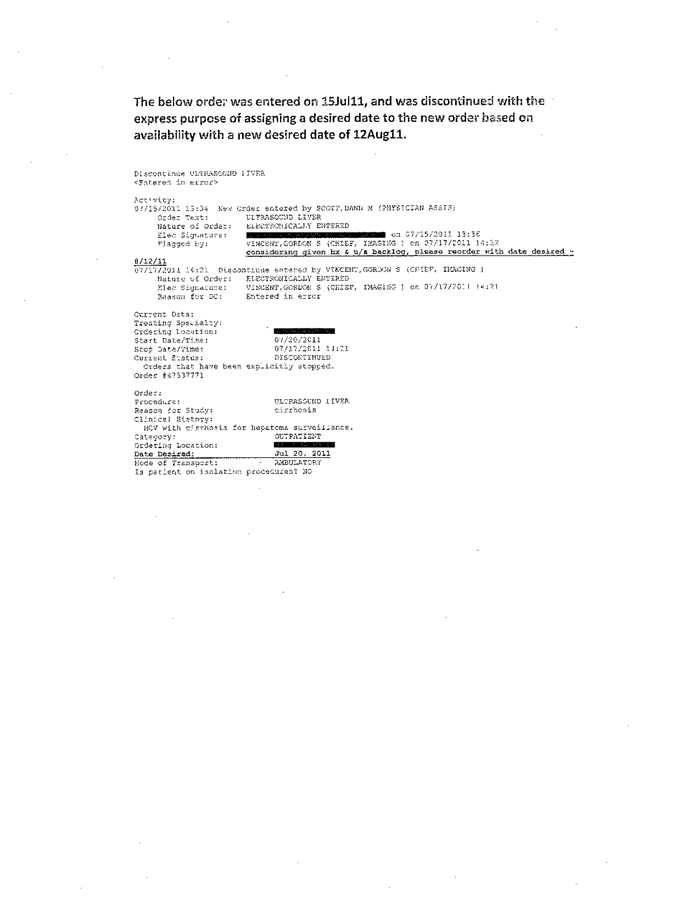
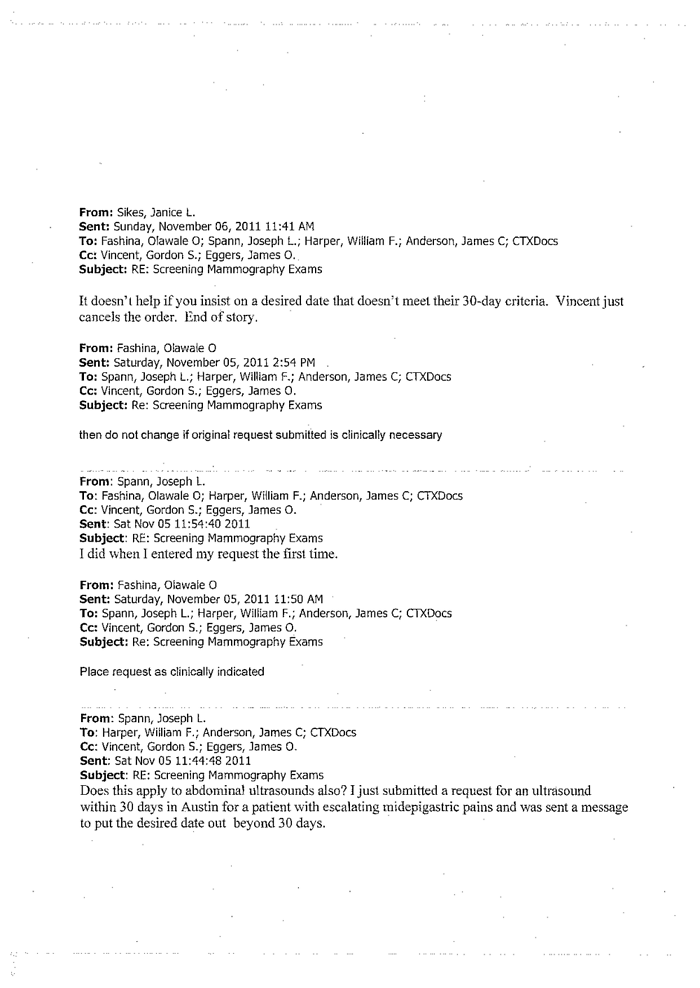
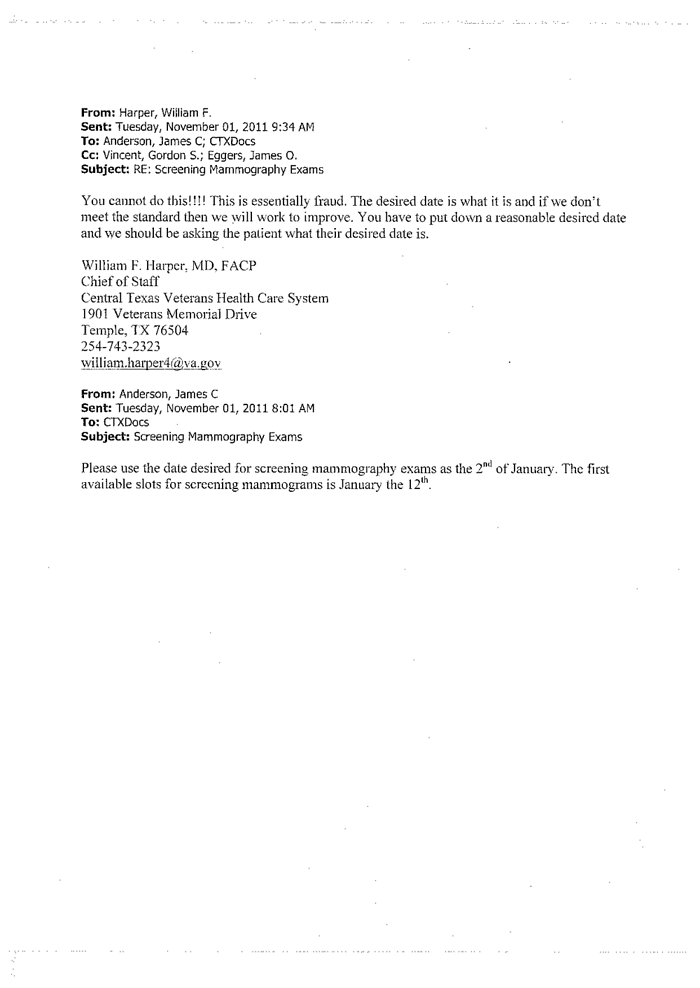



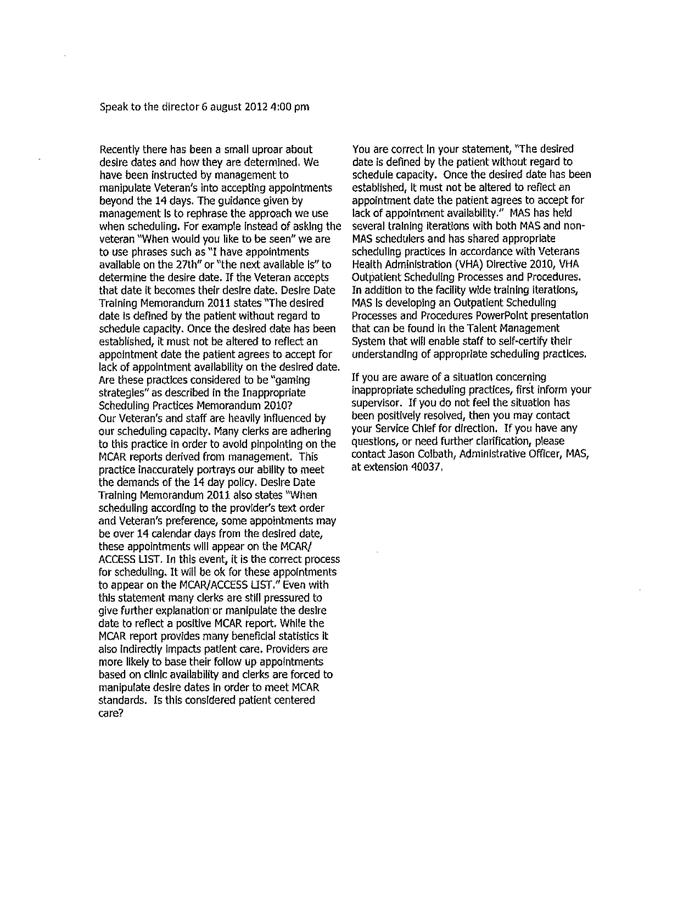
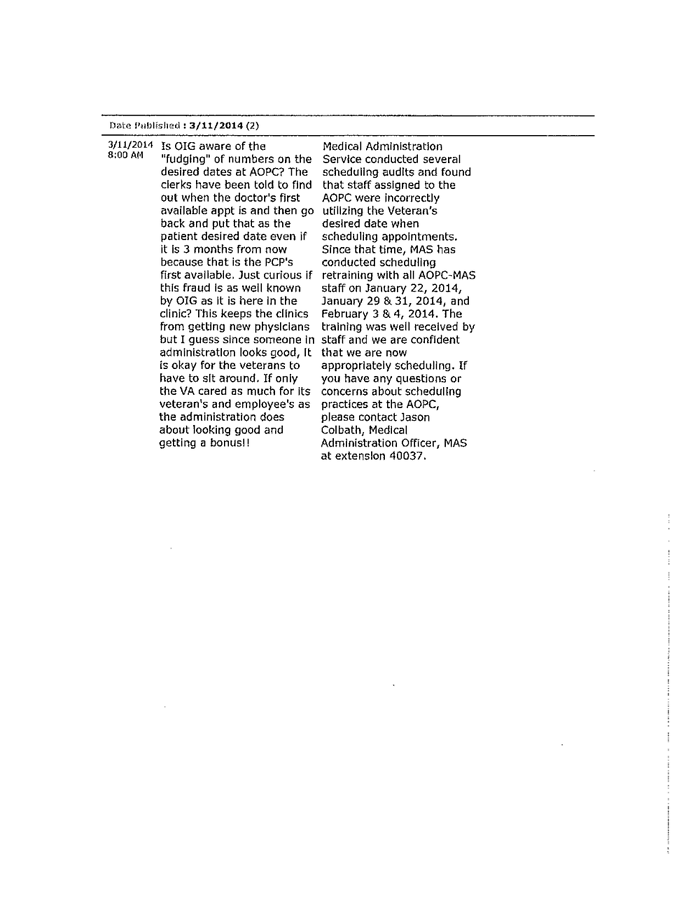



No comments:
Post a Comment